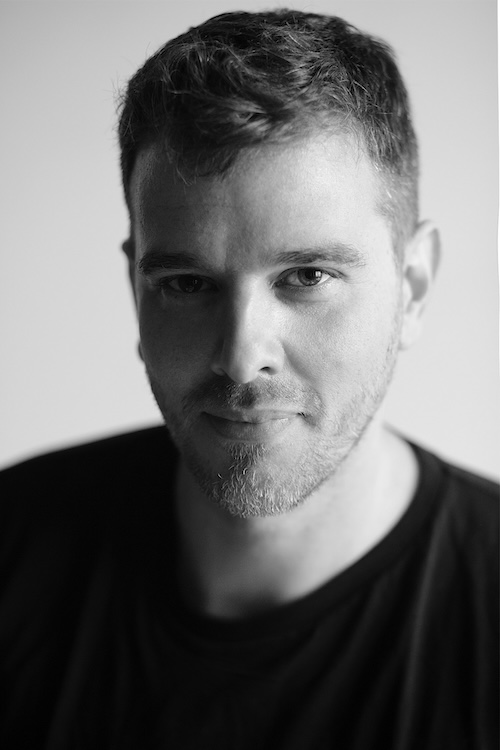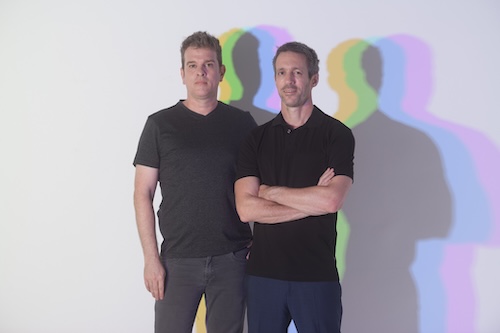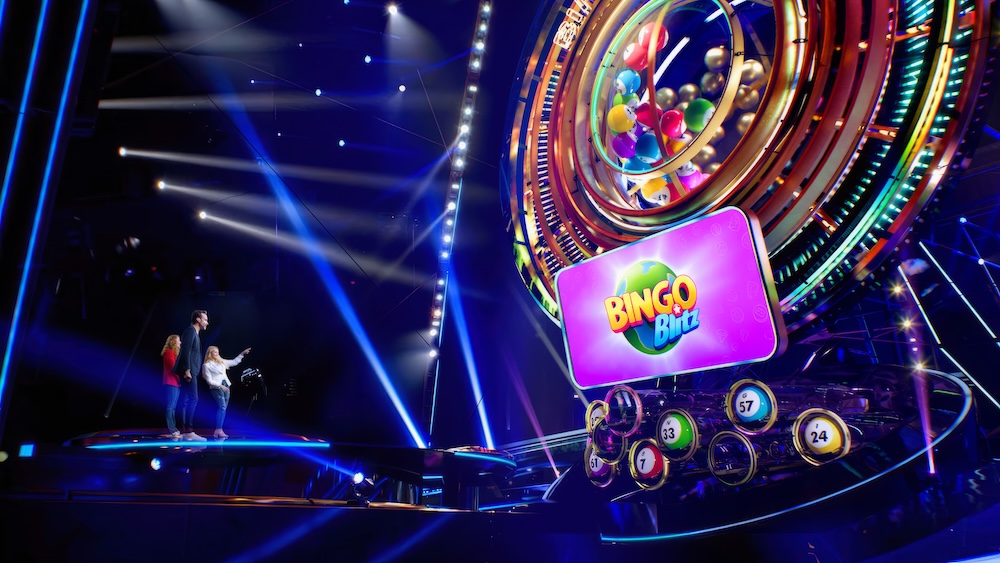GameChanger is an Israel-based virtual production and content technology company. Pulse 2.0 interviewed GameChanger co-founder and CTO Yaron Yashinski to gain a deeper understanding of the company.
Yaron Yashinski’s Background

Could you tell me more about your background? Yashinski said:
“I come from the world of visual effects. Over the years, I’ve worked on large-scale exhibitions and high-end commercials for brands like Sony, Netflix, and Pepsi – featuring celebrities such as Lionel Messi and Samuel L. Jackson – as well as music videos for artists like Coldplay, Maroon 5, and Bon Jovi. My expertise focuses on creating visual illusions and immersive environments. Along this journey I met GameChanger’s Co-Founder and renowned mentalist, Nimrod Harel, while developing a show called The Big Picture. We immediately recognized that if we combined his expertise in mentalism and storytelling with my background in VFX, we could create something truly game-changing in the world of television.”
“As a Co-Founder and visual effects expert, I lead the technology side of the company. I focus on product development, making sure the tools we create are fast, flexible, and practical for real-world television production. I work directly with our partners to adapt the system to their specific needs, and I also oversee the roadmap for future development – from rendering improvements to new features like localization and audience simulation.”
Formation Of The Company

How did the idea for GameChanger come together? What are GameChanger’s core features? Yashinski shared:
“GameChanger was born from the synergy between Nimrod’s narrative instincts and my technological expertise. We saw that traditional TV production was limited by physical constraints (such as set construction, logistics, costs) and understood we could remove those barriers with virtual tools. That led us to develop a system that doesn’t use green screens, doesn’t require any special hardware, and doesn’t need technicians on set. Everything is handled automatically in post-production. Our system allows full shows to be rendered across multiple cameras in just a couple of hours. We also developed tools to generate camera angles, make timing corrections, change languages, and even redesign the virtual set with custom skins. One of the more exciting developments has been our AI-powered virtual audience, which not only looks great but also reacts to what happens in the show. We continue to push our innovative technology to new limits with AI and remain excited about what’s to come.”

Favorite Memory
What has been your favorite memory working for the company so far? Yashinski reflected:
“There’s one moment that really sticks with me. I showed my mother the pilot for Bingo Blitz, and she asked how we managed to build such a huge bingo machine in the studio. She had no idea it was all virtual. For me, that was the ultimate proof that the illusion worked. When someone forgets to even ask whether something is real or not – that’s when you know you’ve done your job right.”
Challenges Faced
Have you faced any challenges in your sector of work recently? Yashinski acknowledged:
“Of course. One of the biggest challenges is that television producers tend to be late adopters of new technology. They’re afraid of adding complexity to shoot days, budget overruns and depending on external technicians. With our proprietary technology, we removed all of those production fears. The shoot itself remains traditional – we only use a laptop on set – and the transformation happens in post. It’s simple and risk-free. GameChanger recently provided the technology for two major game shows, Bingo Blitz and Tic-Tac-Dough. Both shows aired on the Game Show Network back in mid-April. We are thrilled with the outcome of these successful shows and it’s clear to everyone that this technology isn’t the future anymore. It’s already here.”
Evolution Of The Company’s Technology
How has the company’s technology evolved since launching? Yashinski noted:
“We started with environments built entirely in CGI, but as Unreal Engine matured, we transitioned to it to take advantage of its flexibility and real-time power. One of the biggest jumps forward was in our virtual audience. Initially, it was a curated library of video clips – real people clapping and reacting. Today, it’s entirely AI-generated from scratch and responds dynamically to what’s happening in the show. And that’s just one example. Every few months, we upgrade the entire system. The pace of progress is so fast, it’s hard to believe we’re working with the same core idea we started with.”
Significant Milestones
What have been some of the company’s most significant milestones? Yashinski cited:
“One major milestone was when our first original format, Family Piggy Bank, aired in Portugal as a co-production with ITV. Over 300 episodes were produced, which served as a huge validation of the scalability and reliability of our system. Another one was when our technology received patent approval in the U.S. But the real game changer happened a few weeks ago, when Bingo Blitz and Tic-Tac-Dough, both powered by our technology, aired back-to-back on Game Show Network. It’s not just a milestone but it marks the beginning of a real shift in how TV is made.”
Customer Success Stories
When asking Yashinski about customer success stories, he highlighted:
“Our partnership with Playtika on Bingo Blitz is a perfect case. We took the entire world of the mobile game and translated it to television, creating a full-length branded experience that mirrors the app while functioning as a standalone game show. For a gaming company, that kind of brand extension is priceless. And we’re not stopping there – we’re already working on several new projects based on games and brands. Our virtual tools give us an edge when it comes to translating interactive experiences into broadcast-ready formats.”
Funding
When asking Yashinski about the company’s funding details, he revealed:
“We received a modest initial investment from the CEO and President of Wix and their friends. Since then, we’ve been profitable and self-sustaining. We’ve built a model that doesn’t require constant fundraising, and that stability allows us to focus entirely on innovation. Let’s just say our investors are very happy.”
Differentiation From The Competition
What differentiates GameChanger from its competition? Yashinski affirmed:
“No one else offers what we do. The closest alternative might be XR studios, but those are massive, expensive setups suited for feature films, not TV. They’re great for shooting Star Wars, but not for producing hundreds of game show episodes. Even in that space, we do things they can’t do things like a 360-degree shooting, rapid turnaround, and complete post-production flexibility. We don’t use green screens, we don’t rely on hardware, and we don’t need technicians on set. Everything happens in post-production, using our own patented tools. But what really sets us apart is our mindset. We’re not tech people trying to break into TV. We’re TV people who built the technology we always needed. That is our differentiator and what gives us an advantage.”
Future Company Goals
What are some of the company’s future goals? Yashinski emphasized:
“Right now, we’re focused on expanding our presence in the American market. We also want to work with more networks and streaming platforms – whether it’s refreshing existing formats or developing brand-new ones. Another area of growth is localization. Our tools can instantly adapt shows into other languages, changing every visual and graphic element. That’s a massive value-add for global distribution. We’re also preparing to expand into new genres, like talent shows and dating formats. Our goal is to make our technology the new standard for studio-based television.”
Additional Thoughts
Any other topics you would like to discuss? Yashinski concluded:
“Our mission has always been to empower creators. There are so many amazing show ideas out there that never see the light of day because someone says, “That’s too expensive,” or “That’s impossible to produce.” We’re here to prove that with the right tools, nothing is too expensive and nothing is impossible. The laws of physics don’t apply to us. We’re in the business of spectacle, and we’re just getting started.”


